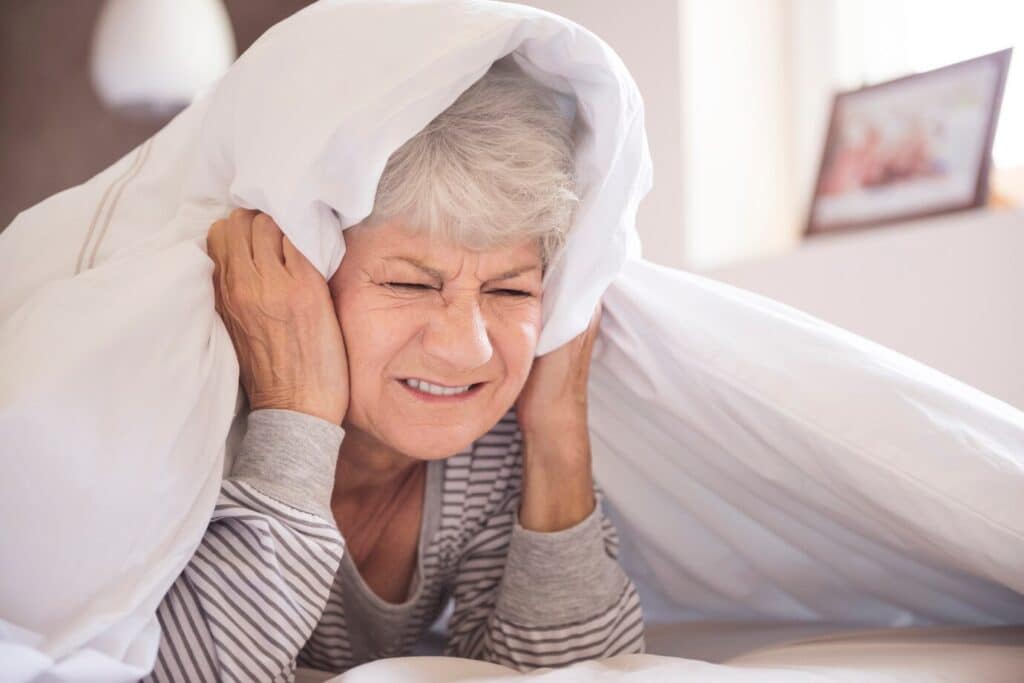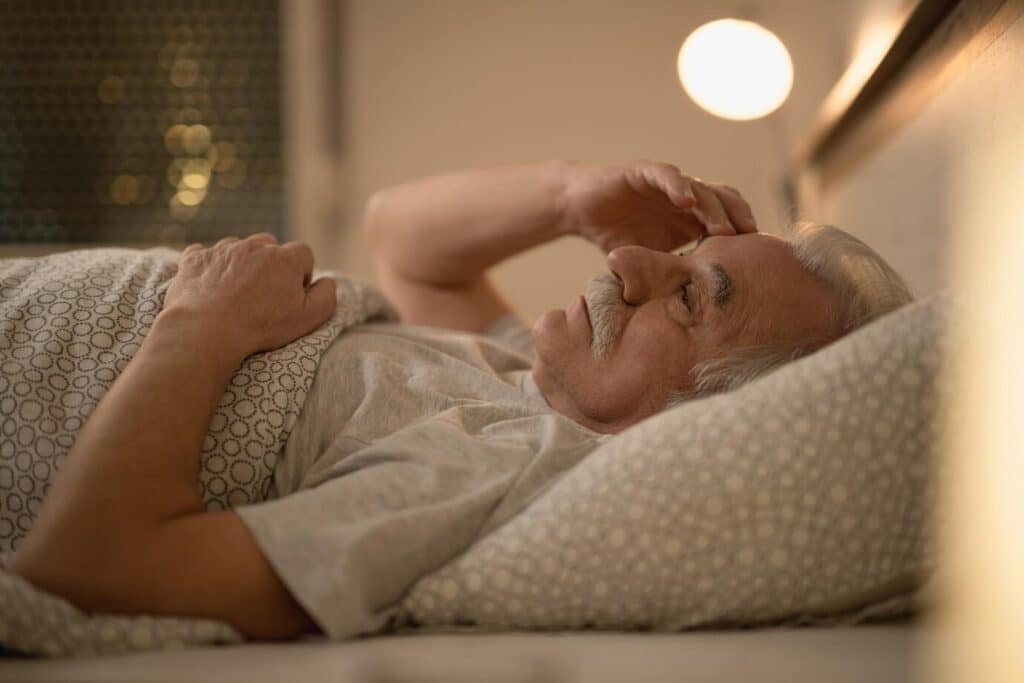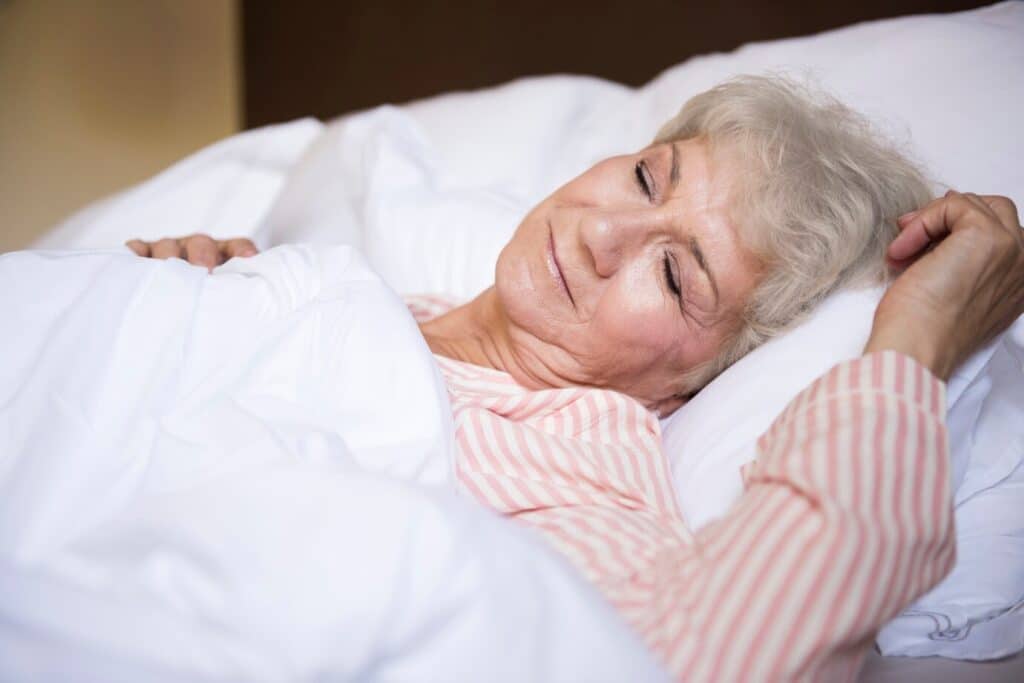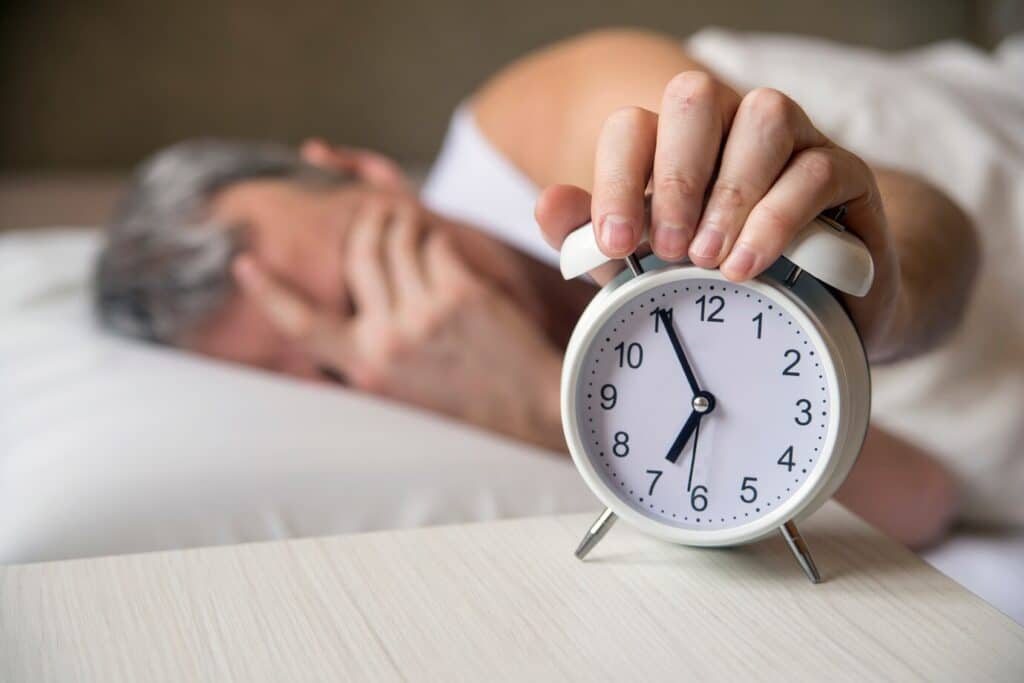Sleep Anxiety: Understanding Causes and Sleep Challenges
Sleep anxiety can be a troubling cycle of worry and restlessness that keeps you up at night. From racing thoughts to physical discomfort, the inability to relax before bed can lead to frustration, especially for older adults. Recognizing this condition and how it interacts with age-related sleep changes is key. At Westmont of Brentwood, we’re committed to supporting individuals and their families with resources that ease anxiety and promote peaceful rest.
Why Do the Elderly Have Trouble Sleeping at Night
It’s common to wonder, why do elderly have trouble sleeping at night? As we age, our circadian rhythms change, often resulting in lighter, fragmented sleep. Medical conditions, medications, or emotional concerns can make the problem worse. Seniors may also worry about sleep itself, which can create anticipatory anxiety and heighten the difficulty. Understanding how sleep patterns shift in older adulthood can help reduce sleep anxiety and foster more compassionate care.
Recognizing Sleep Anxiety in Seniors
Signs of sleep anxiety often include restlessness, dread at bedtime, and frequent waking. In seniors, these may appear alongside irritability or increased forgetfulness during the day. The fear of another sleepless night can intensify over time. Families noticing these patterns can offer gentle support or seek guidance from professionals. At Westmont Living, validating concerns while establishing soothing nighttime routines can go a long way.
Do the Elderly Sleep a Lot Before Death?
You may have heard that seniors begin sleeping more near the end of life, and ask, do the elderly sleep a lot before death? While it’s natural for the body to conserve energy during advanced aging or illness, increased sleep in this stage is not the same as chronic sleep anxiety. Instead, it’s a shift toward physical decline, not mental unrest. Distinguishing between the two helps families offer the right kind of support—be it comfort care or interventions for ongoing sleep-related anxiety.
Elderly Not Sleeping at Night: What It Means
Elderly not sleeping at night may point to a deeper issue like unresolved stress, chronic pain, or a disrupted sleep-wake cycle. This persistent wakefulness is different from occasional restlessness. Seniors lying awake with racing thoughts might be struggling with sleep anxiety without recognizing it. Encouraging gentle wind-down activities or providing a reassuring environment can help them relax. Maintaining regular sleep routines is key to easing nighttime alertness in aging adults.

How to Increase Deep Sleep in the Elderly
Knowing how to increase deep sleep in the elderly is essential for overall health and well-being. Deep sleep supports memory and physical repair, both crucial as we age. To help seniors get this restorative rest, try reducing noise, dimming lights early, and encouraging light exercise during the day. Practices like meditation or warm baths before bed can also help reduce sleep anxiety, allowing the body to slip into deeper stages of rest. Learn more strategies at Westmont Living.
Remedy for Insomnia for the Elderly
If you’re seeking a remedy for insomnia for elderly loved ones, it’s important to avoid relying solely on medication. Non-pharmacological approaches often offer lasting results. Mindfulness exercises, consistent bedtimes, and a sense of safety in the sleeping space can make a big difference. These methods not only treat insomnia but also ease sleep anxiety, reducing emotional tension at night. Support groups or counseling can also help seniors feel heard and more at ease.

Managing Sleep Anxiety with Professional Support
There are times when home remedies may not be enough. If sleep anxiety disrupts daily functioning or leads to frequent emotional distress, seeking professional help is vital. Therapists trained in cognitive behavioral therapy for insomnia (CBT-I) can provide powerful tools for coping. In some cases, medical evaluations might uncover hidden issues like apnea or depression contributing to poor sleep. Don’t hesitate to reach out—professional guidance can help restore restful nights.
Small Changes, Big Impact
Sometimes, minor changes can lead to significant improvements. Reducing caffeine in the afternoon, limiting screen use before bed, and adding calming rituals can reset the body’s sleep expectations. These adjustments also work well with anxiety-reduction strategies, helping break the cycle of worry and wakefulness. Seniors benefit immensely from a structured, supportive environment that signals safety and consistency each night.

A Holistic View of Sleep Health
Treating sleep anxiety requires a full picture. It’s not only about falling asleep—it’s about understanding the emotional, physical, and environmental layers affecting rest. When we take a holistic approach, including nutrition, exercise, and emotional wellness, we see better outcomes in seniors struggling to sleep. Sleep is a basic human need, and when anxiety stands in the way, it deserves thoughtful care.
At Westmont of Brentwood, our commitment to senior well-being includes guidance and resources for sleep health. Whether you’re navigating sleep anxiety or searching for a remedy for insomnia for elderly loved ones, we’re here to help. Visit us or call 925-516-8006 to explore how we can support your family’s journey toward better rest.
How Do The Costs Of Moving Into A Quality Senior Care Community Compare With The Costs Of Staying At Home?Compare The Costs of Senior Living vs Staying at Home
Frequently Asked Questions
How do I overcome sleep anxiety?
Overcoming sleep anxiety starts with creating a calming bedtime routine and sticking to a consistent sleep schedule. Avoid stimulants like caffeine and screens before bed, and consider relaxation techniques like deep breathing or guided meditation. Cognitive Behavioral Therapy for Insomnia (CBT-I) is also an effective treatment. If anxiety persists, speak with a healthcare provider for additional support or treatment options.
What is the best treatment for anxiety in the elderly?
The best treatment for anxiety in older adults often involves a combination of therapy and lifestyle changes. Cognitive Behavioral Therapy (CBT) is widely recommended and effective for managing anxiety symptoms. In some cases, low-dose medications may be prescribed, but these should be used cautiously due to potential side effects in the elderly. Gentle exercise, social interaction, and mindfulness can also be helpful.
What is the most common anxiety disorder in the elderly?
Generalized Anxiety Disorder (GAD) is the most common anxiety disorder among older adults. It involves persistent, excessive worry about everyday issues like health, finances, or family. Many elderly individuals may also experience anxiety linked to medical conditions or life transitions. Early recognition and treatment can greatly improve quality of life.
What is the best medication for anxiety and insomnia?
The best medication for anxiety and insomnia varies depending on the individual’s health history and needs. Doctors may prescribe medications like SSRIs (e.g., sertraline) for long-term anxiety, and short-term sleep aids like melatonin or low-dose sedatives for insomnia. However, many medications carry increased risks for older adults, such as falls or cognitive side effects. Always consult with a healthcare provider to determine the safest and most effective option.








